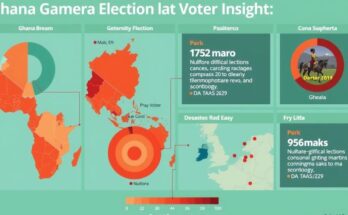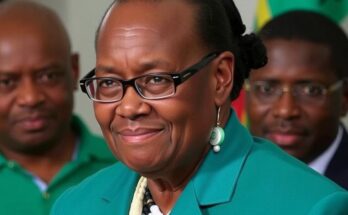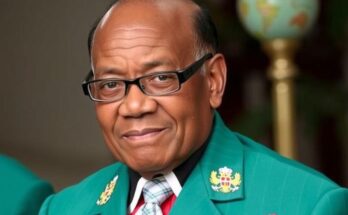Claro Mayo Recto was a Filipino statesman born on February 8, 1890, who led the “Filipino-first” movement against U.S. neo-colonialism. He served as a member of the House of Representatives and later in the Senate, playing a pivotal role in drafting the Commonwealth constitution and opposing U.S. influence during and after World War II. He was known for his fight against unequal trade agreements and pushed for nationalization of foreign enterprises, ultimately becoming the presidential candidate for the Nationalist Citizens’ Party in 1957.
Claro Mayo Recto, born on February 8, 1890, in Tiaong, Philippines, and passing on October 2, 1960, in Rome, Italy, was a prominent statesman and a leading figure in the “Filipino-first” movement, which vehemently opposed American neo-colonialism in the Philippines. After receiving his law degree from the University of Santo Tomás in 1913, Recto entered politics, being elected to the Philippine House of Representatives in 1919 and serving three terms as the floor leader for the minority Demócrata Party. In 1931, he was elected to the Senate, where he later shifted his allegiance to the Nacionalista Party in 1933. Recto was an integral part of a mission to Washington, D.C., led by Manuel Quezon that successfully advocated for the passage of the Philippine Independence and Commonwealth Act in 1934, also known as the Tydings-McDuffie Act. He presided over the convention that drafted the constitution for the newly established Commonwealth government and served as an associate justice of the Supreme Court from 1935 to 1936 before returning to the Senate in 1941. During the Japanese occupation of World War II, Recto aligned with the government of José Laurel. After the war, he re-established himself as a significant political figure, winning two Senate terms in 1949 and 1955. His career saw a resurgence during the presidency of Ramon Magsaysay, wherein Recto emerged as a formidable critic of the overwhelming influence of the United States in the Philippines. He advocated for the rejection of the Bell Act, which conferred unfair trade advantages to the U.S., and asserted the need for the Philippines to claim ownership over American military bases on its soil. Furthermore, he introduced the Omnibus Nationalization Act, aimed at nationalizing major economic enterprises, predominantly those owned by foreign entities. Recto expressed concerns regarding Magsaysay’s perceived subservience to U.S. interests, notably due to the Philippines’ participation in the Southeast Asia Treaty Organization and the recognition of the anti-Communist regime of Ngo Dinh Diem in South Vietnam. In 1957, Recto dissociated from the Nacionalista Party to join the newly formed Nationalist Citizens’ Party, where he championed the principles of neutrality in foreign relations and economic independence from American interests. He contended for the presidency under this party’s banner in the 1957 elections, though he was unsuccessful in his bid.
Claro Mayo Recto was a key figure in the discourse around Philippine nationalism and the struggle for political independence from American influence. His advocacy against neo-colonialism reflects broader themes in the Philippines’ historical context during the 20th century, particularly the lingering effects of colonial rule and the pursuit of sovereignty. His political journey encapsulates the complexities of Filipino politics, where issues of foreign influence, economic policy, and national identity were profoundly interconnected.
Claro Mayo Recto’s legacy is marked by his unwavering commitment to Philippine nationalism and his considerable influence on the political landscape of the Philippines during the early to mid-20th century. His rejection of American neo-colonialism, advocacy for economic independence, and promotion of national rights resonate in contemporary discussions about sovereignty and self-determination in post-colonial contexts.
Original Source: www.britannica.com




